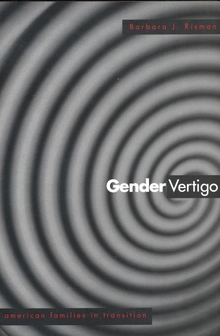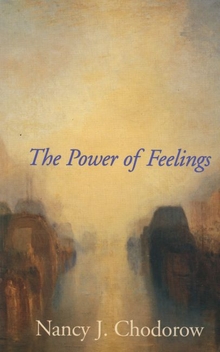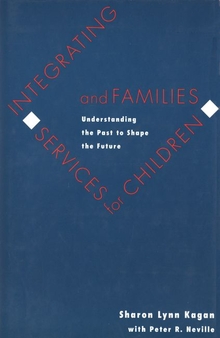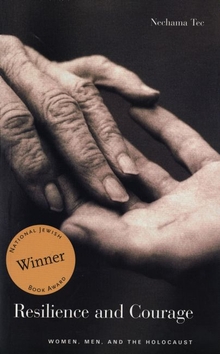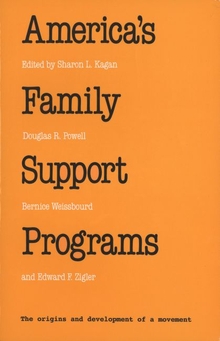Gender Vertigo
WARNING
You are viewing an older version of the Yalebooks website. Please visit out new website with more updated information and a better user experience: https://www.yalebooks.com
American Families in Transition
Barbara J. Risman
In her analysis of nontraditional families, Risman finds that gender expectations can be overcome if couples are willing to flout society and risk "gender vertigo." Most children of such families adopt their parents’ beliefs about gender, but they do struggle with the contradictions between parental ideology and folk knowledge and expectations in peer relationships. The author argues that we can create a just society only by creating a society in which gender is an irrelevant category for social life—a post-gender society.
"In Gender Vertigo, Barbara Risman describes gender itself is a social structure, influencing life at the institutional level, the interactional level, and the individual level. In negotiating institutions, interacting with our partners, and thinking about ourselves, categorization by gender makes everyday life manageable. Nevertheless, privileged, well educated, income-generating professional women, together with family-centered husbands, can, through human agency, contest this structure, and create fair families. Through their lives, and those of their children, Risman reveals the promise of a radically different world."—Alexis Walker, Professor of Family Studies
"Barbara Risman provides all types or readers (undergraduate, graduate, non-academic) with an accessible approach to very complex advances in gender theory and research. This book is excellent. The writing is clear and understandable while maintaining high standards for research and scholarship. My students were thrilled to find an engaging book that made clear the limitations of previous work (sex differences and socializations) and offered an integrated approach to understanding gender and families. This book provided the basis for lively classroom discussion and served as an exemplar for the student's own attempts to analyze how gender operates in their world. In addition, the variety of innovative methodologies for studying gender provided a vision for how we can create research that tests propositions from her fruitful theoretical framework. Risman successfully captures the complex, gendered nature of families in a readable, insightful book."—Julia McQuillan, University of Nebraska, Lincoln
"Gender Vertigo is well timed—reading this book reminds us of the dizzying pace of social change and how much there is to learn about gender adaptations in the challenging world of today's men and women. No one has captured the complexity of grappling with gender traditions better than Barbara Risman. This book skillfully and convincingly shows us that while mothers, fathers, and children are molded by cultural expectations, some men and women succeeded at creating more personal and feminist visions of family life. This is an important and very useful book."—Pepper Schwartz, co-author of The Gender of Sexuality
"This is a thoughtful, important, clearly written book that should be of enormous use in sociology courses. It pulls together what we know and takes us many steps forward."—Arlie Hochschild, Department of Sociology, University of California, Berkeley
"Risman's brief, fascinating, and easily read study draws on existing literature and original empirical research to explore gender as social structure permeating individual, interactional, and institutionals levels of societal existence in the U.S. . . . This is a provocative, thoughtful, and scholarly monograph deserving wide attention."—Choice
"An exciting contribution to our developing theoretical frameworks for analyzing both the persistence of gender inequality and the possibilities for achieving a post-gendered society. . . . A powerful analysis that is convincingly argued."—Kathleen Gerson, Contemporary Sociology
"Barbara Risman provides a rich and deep analysis of why it is so hard for heterosexual couples to 'do gender' nontraditionally, but she also introduces us to more kinds of nontraditional heterosexual couples and their children than I had ever thought to imagine. An inspired combination of feminist sociological theory, survey research that reads like collective biography, and realistic optimism for a less gendered future."—Sandra Lipsitz Bem, author of The Lenses of Gender and An Unconventional Family
"This book offers original and extensive data on families where men 'mother' and where equality is built into family arrangements. Risman proves that gender equality is a realistic ideal even in the most traditional gendered structure—the heterosexual family."—Judith Lorber, author of Paradoxes of Gender
"A noteworthy book."—Journal of Marriage and the Family
"An insightful, innovative, and provocative contribution to gender theory. . . . I recommend Gender Vertigo for both personal libraries and upper-level and graduate courses on gender."—Jane C. Hood, Gender and Society
Publication Date: September 10, 1999

